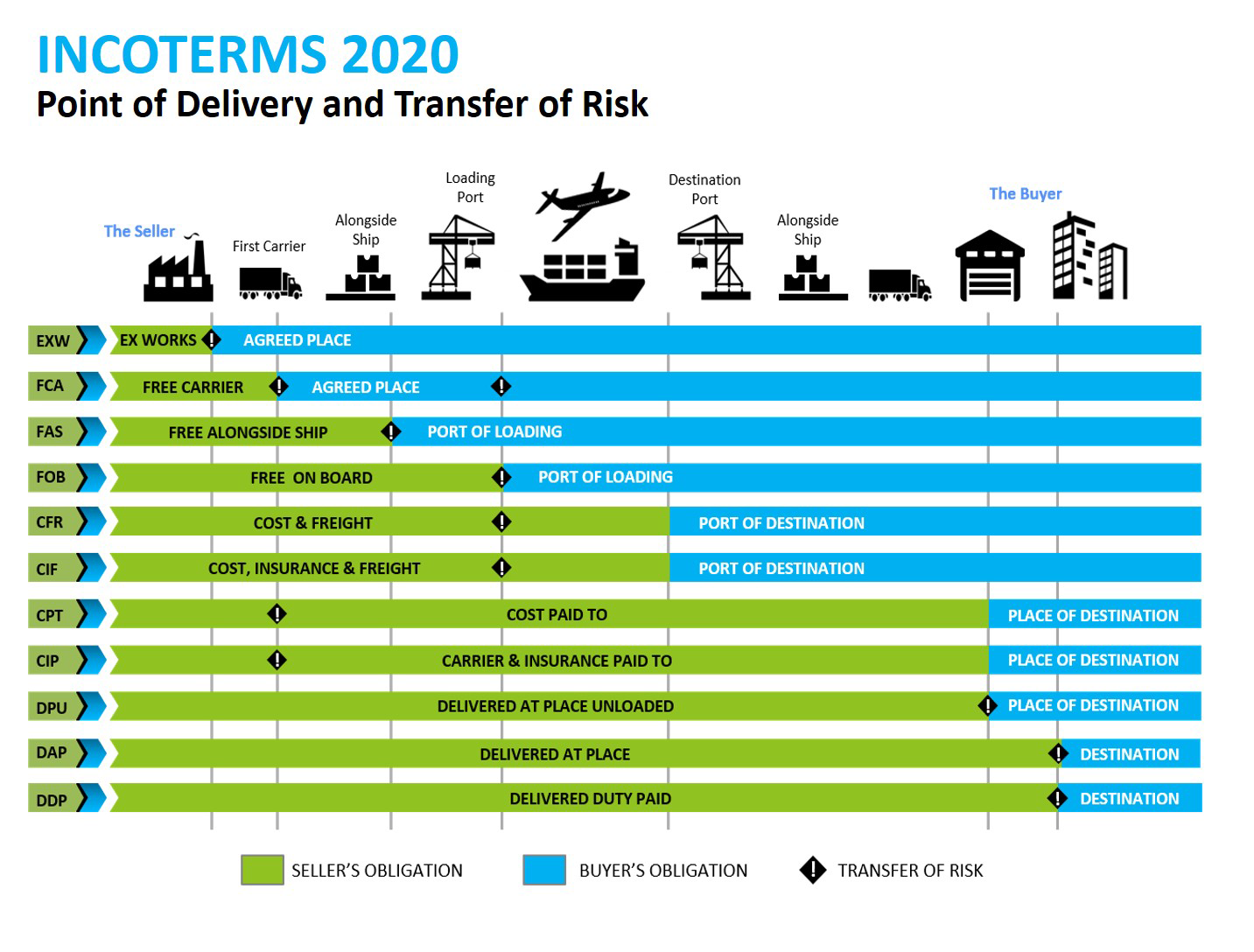|
Different countries have different business cultures and languages. It’s a good idea to make sure you have a clear written contract to minimise the risk of misunderstandings. The Incoterms rules or International Commercial terms are a series of pre-defined commercial terms widely used in international commercial transactions.
The contract should set out where the goods are being delivered. It should cover who is responsible for every stage of the journey, including customs clearance, and what insurance is required. It should also make it clear who pays for each different cost.
To avoid confusion, internationally agreed Incoterms should be used to spell out exactly what delivery terms are being agreed, such as:
- where the goods will be delivered
- who arranges transport
- who is responsible for insuring the goods, and who pays for insurance
- who handles customs procedures, and who pays any duties and taxes
As well as including delivery details, the contract should cover payment. This should include what currency payment will be made in, how much will be paid, when payment is due and what payment method will be used.
The chart below lists the current Incoterms® along with where the obligations lie and where the transfer of risk applies.*

*This chart is not intended to be used alone and should always be used in conjunction with the Incoterms® 2020 rule book.
Trade in services
With no physical delivery of the product, contracts in services cannot use Incoterms. Instead, the key issue tends to be defining exactly what services are being provided and to what standards.
|
